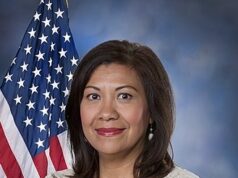WASHINGTON, D.C. – September 3, 2015 – (RealEstateRama) — We say farewell to Emily Ford, who will wrap up her year of service at the PJC on August 7. Emily served as a Housing Paralegal through Jesuit Volunteer Corps. She shares her reflections below. Thank you, Emily!
I spent the past year as a staff member of the Public Justice Center through the Jesuit Volunteer Corps. The JVC program places volunteers in direct service organizations with the hope that participants will grow in the values of simplicity, spirituality, community and social justice. As a paralegal in the Human Right to Housing Project, I mainly conducted intakes and case management for low income tenants who are at the risk of losing their homes due to eviction, dangerous housing conditions or their landlord’s foreclosure. In addition, I assisted attorneys on community-based public policy initiatives surrounding the problems of inclusionary housing ordinances, permanently affordable housing and rent court reform in Baltimore City.
Looking back at my time spent with individual clients, I am reminded of a quotation from a speech entitled “Where Do We Go From Here” by Martin Luther King, Jr. At the time, King grappled with the immensity of despair caused by the challenges that the African American population faced in the south. In conclusion, however, he preached that we have to “realize that the arch of the moral universe is long, but it bends towards justice.” In this statement, King created a much needed sense of hope. Organizations such as the Public Justice Center embody this statement by providing legal and legislative assistance to struggling individuals and communities. These “little” victories also serve to inspire other advocates. For instance, one of my most vivid and fulfilling memories involved distributing a modest settlement check to a client. This client could not hold in his excitement and proclaimed that we were all invited to a cookout that he was having at his new home. This check, though not a large impact victory, allowed his family to pay for the security deposit and move into a safe, habitable new property — a far cry from their previous neglected residence. This one glimpse of happiness made all of the numerous intakes, unreachable clients and trips to and from court worth it.
One moment of happiness, however, does not solve structural racism and poverty. I would argue that Martin Luther King, Jr., recognized this and also demanded continued action. It became very clear to me through my time at PJC that this “bend towards justice” will not occur with just the passive movement of time; the pursuit of a more just society requires relentless action. The role of the Public Justice Center is to force change and to hold individuals, organizations and the government entities accountable to working with people in communities. In the end, all of society benefits from more equitable policies. Lilla Watson, summarized this sentiment by proclaiming, “If you have come to help me, you are wasting your time. But if you have come because your liberation is bound up with mine, then let us work together…”














